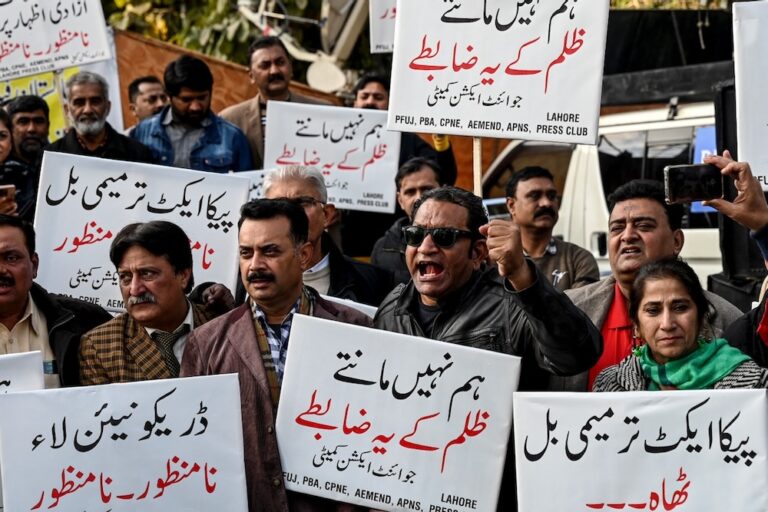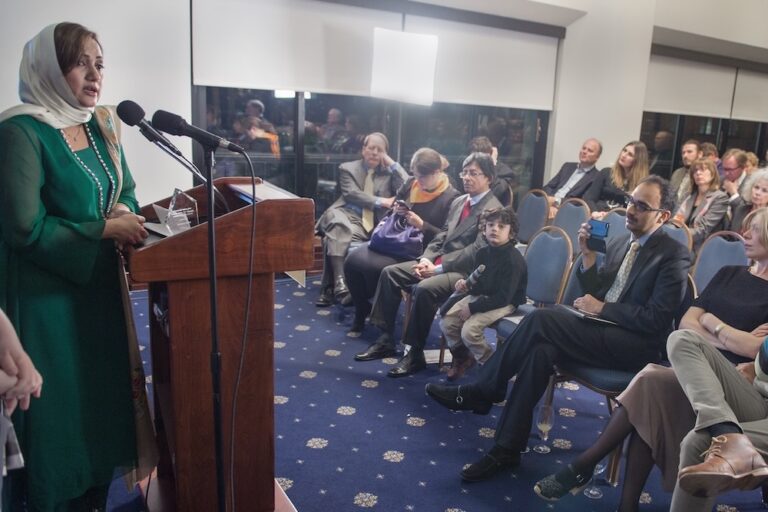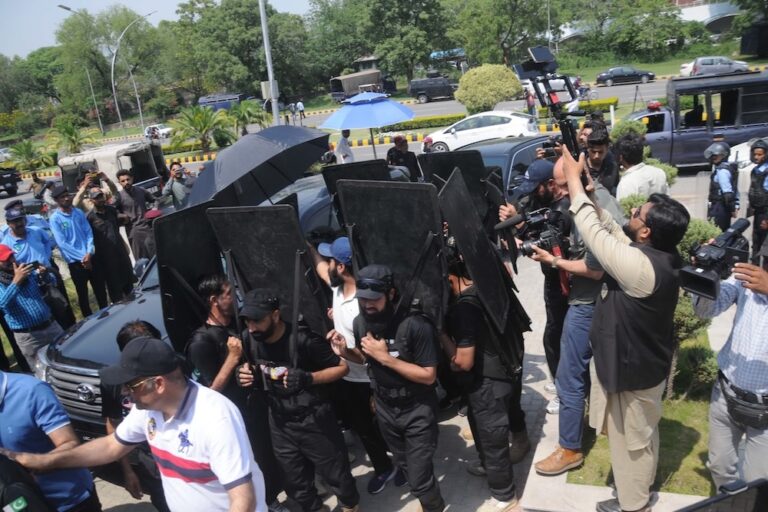(RSF/IFEX) – In a letter sent to the Home Secretary Mir Laiq Shah, of the government of North-West Frontier Province, RSF protested the arrest of Ahmed Jan Siddiqui, correspondent of the newspaper “Ausaf in Sadda” (Kurram Agency), and the issuing of arrest warrants against Iqbal Hussain, correspondent of the Rawalpindi-based “Jang” and “The News International”, […]
(RSF/IFEX) – In a letter sent to the Home Secretary Mir Laiq Shah, of the government of North-West Frontier Province, RSF protested the arrest of Ahmed Jan Siddiqui, correspondent of the newspaper “Ausaf in Sadda” (Kurram Agency), and the issuing of arrest warrants against Iqbal Hussain, correspondent of the Rawalpindi-based “Jang” and “The News International”, and freelance journalists Muhammad Jamil and Mohammad Idris. The press freedom organisation asked the home secretary to ensure that “the journalist was immediately released and the arrest warrants withdrawn”. Finally, Robert Ménard, the organisation’s secretary-general, recalled that in a document dated 18 January 2000, the United Nations’ Special Rapporteur on freedom of opinion and expression had emphasised that “detention as punishment for the expression of a peaceful opinion is a serious violation of human rights.”
According to the information collected by RSF, Ahmed Jan Siddiqui was arrested on 7 June 2000 by policemen in Sadda (North West of Pakistan). Police reproached him for publishing articles denouncing corruption within the local civil administration. He is being held under Article 40 of the 1901 Frontier Crimes Regulation.
On 23 May, the authorities issued an arrest warrant against Hussain, Kurram district correspondent of “Jang” and “The News International” newspapers. The journalist went underground and his brother Ajmal Hussain, a journalist with the daily “Sahafat”, was arrested. On 6 June, his father was also detained. On 10 June, both were released for fifteen days. The authorities told Hussain that if he did not give himself up to police within two weeks, his father and brother would go back to jail. The journalist had written reports on the arrest of a group of people during a demonstration in favour of a religious scholar in conflict with the authorities.
Finally, during the week of 5 June, the authorities issued two arrest warrants against Jamil and Idris, two freelance journalists and members of the Tribal Union of Journalists (TUJ). On 12 June, the chairman of the TUJ called for a hunger strike if the journalist was not released and the arrest warrants withdrawn within the next forty-eight hours.


